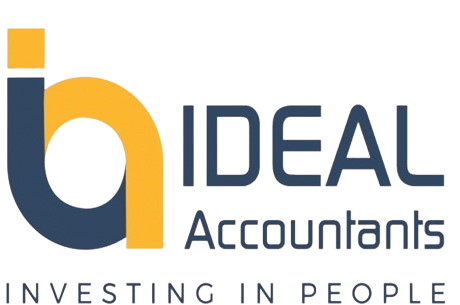Corporate Tax in UAE
Corporate Tax in the United Arab Emirates (UAE) is a type of business direct tax levied by the government on incorporated businesses. The UAE has a flat corporate tax system
In the past, the UAE has been working to improve its image as a corporate tax haven, with some success. In 2013, the UAE was placed among the lowest-tax countries in the world by the World Bank, and it has since made efforts to improve its corporate tax system. The UAE has eliminated certain taxes, lowered rates, and simplified its tax laws in an effort to attract foreign investment. The UAE is also working to improve its infrastructure.
In the UAE, corporate tax is going to be introduced at a rate of 9%. This makes it one of the lowest in the region and has led to the country being ranked as one of the most business-friendly in the world. There are a number of benefits to operating in the UAE, including low taxes, a stable political environment, and a skilled workforce.
The current corporate tax system in the UAE
The UAE corporate tax system is one of the most complex in the world. There are several different rates that companies must pay, as well as numerous deductions and credits that can make the effective tax rate much lower. The system is also highly susceptible to abuse, with large corporations often able to shave off significant amounts of tax by exploiting loopholes and exemptions.
This has led to criticism of the UAE corporate tax system, with many experts calling for it to be overhauled or replaced altogether. The current corporate tax system in the UAE is based on a value-added tax (VAT) and an individual income tax. The VAT rate is currently 5%. The individual income tax rate is currently 0%.
There are a number of deductions that can be claimed, including depreciation and wages. The corporate tax system also has a number of exemptions, including charitable organizations, social welfare organizations, and educational institutions.
The potential impact of the proposed corporate tax reform in the UAE
The proposed corporate tax reform in the UAE is expected to have a significant impact on the country’s economy.
The reform is aimed at reducing the country’s tax burden and encouraging free zone business investment. It is also hoped that the reform will boost economic growth and create jobs. The proposed changes would reduce the corporate tax rate from 9 percent to 7 percent
Additionally, there are plans to abolish deductions and credits, which would increase the overall tax burden for companies. The reform is still in its early stages and has yet to be approved by the government, so it remains to be seen how exactly it will affect the UAE’s economy.
However, with a growing global economy and increasing competition from other countries, it is likely that the proposed corporate tax reform will have a positive impact on the country’s economy.
Main Key points of corporate tax in the UAE
- Corporations in the United Arab Emirates are taxed on a basis of their profits and their shareholders’ equity.
- In the United Arab Emirates, corporate tax by the federal tax authority is levied at a rate of 9%. This is lower than the average corporate tax rate in developed countries, which is generally above 30%. However, the UAE does have some relatively high rates for specific types of companies. For example, foreign-owned oil and gas companies are subject to higher corporate tax rate.
- Tax holidays include a five-year period starting from the year of establishment, during which no corporation tax is payable.
- There are also credits available for investments in research and development, new manufacturing facilities, or increasing exports by 50%.
- Foreign companies that have registered in the UAE can avail themselves of many exemptions from taxation, including capital gains taxes, value-added taxes, and withholding taxes on dividend payments to foreign shareholders.
- There are also a number of exemptions and deductions available to businesses in the UAE. These include business income derived from exports, research and development expenditure, and contributions made to employee welfare schemes.
- The government levies value-added taxes (VAT) on most goods and services sold within the UAE, as well as a special personal consumption tax on non-resident residents and foreign employees.
- Intra-group transactions are generally subject to corporate tax, although there are some exceptions. Transactions that qualify for an exemption from corporate tax include transactions between related parties, intra-group loans, and purchases or sales of assets between affiliated companies.
The future of corporate tax in the UAE:
The future of corporate tax in the UAE is looking bright. The government is currently in the process of revising the country’s federal corporate tax laws, which are expected to make life much easier for businesses operating in the country. Among other things, these revisions will reduce the number of taxes that companies have to pay, making their operations more efficient and cost-effective.
Meanwhile, the government is also working to conduct business models that will allow firms to avoid paying corporate taxes altogether. All of this suggests that the UAE is poised for continued success as a corporate tax jurisdiction.
Who pays corporate tax in UAE?
A key question for businesses in the UAE is who pays federal corporate tax. This is because income above from 375,000 UAE dirham ($102,000) is taxed at a rate of 9%. This means that companies with annual revenue of more than this amount must pay their taxes directly to the government.
In practice, this means that most companies in the UAE with annual revenue of around this amount are registered as partnerships. They are then responsible for paying their own share of corporation tax (as well as VAT and other indirect taxes).
However, there are a few very large companies – including Emirates Airline and Etihad Airways – which are registered as companies. These companies are therefore responsible both for paying their own share of corporation tax (as well as VAT and other indirect taxes) and for making contributions to social security schemes such as national insurance.
Benefits and drawbacks of the corporate tax in the UAE
Corporate tax in the UAE is a highly debated topic. There are a number of benefits to the UAE’s lower corporate tax rate. First, it incentivizes businesses to invest in UAE-based companies rather than offshore ones, since the costs of doing so are relatively low. Second, it supports economic growth by making it more affordable for businesses to expand and create jobs. Finally, lower corporate taxes allow the government to collect more revenue overall – money that can be used for public services or invested back into the economy.
However, there are a few concerns that people have about corporate tax incentives. One concern is that it may be too high and discourage businesses from expanding. Another concern is that it may not be fair because companies with more money will pay more than companies with less money. However, despite these concerns, most experts agree that the corporate tax group is an important part of the UAE’s economy and contributes to its overall stability.
What Taxes are there in the UAE?
The UAE has several taxes that residents and businesses must pay. These include personal income tax, corporate tax, value-added tax (VAT), and others. The following is a list of the most common taxes in the UAE:
1) Personal income tax:
The United Arab Emirates does not levy an income tax on individuals or corporations. This is in stark contrast to other Gulf Cooperation Council (GCC) countries, all of which have some form of income tax.
2) Corporate tax:
The UAE Corporate Tax Rate is 9% for companies whose net profits exceed AED 375,000. There is no corporate tax rate for companies with net business profits between AED 250,000 and AED 375,000.
3) Value-added tax (VAT):
This is a sales tax that applies to most goods and services. Value-added tax (VAT) is a type of tax that businesses in the UAE must pay on their purchases. This tax is collected by the UAE government and added to the price of the goods or services. The rate of VAT in the UAE is 5%.
Conclusion
In conclusion, the UAE has a very low corporate tax rate, making it a popular destination for businesses. The UAE ct regime is one of the most competitive in the region and has proven to be an effective tool for encouraging businesses to grow and invest in the country.
The system is easy to navigate and provides a clear overview of all liabilities and tax obligations associated with a company’s operations. All UAE business should consider this as an important part of their planning process when setting up in the UAE. please feel free to contact ideal Accountants if You need Trustworthy Accountants in Dubai

Our Services

Best Payroll Services
We are specialize in payroll services, we provide payroll...
Bookkeeping Services
Accurate bookkeeping is crucial for sustained and successful...
Business Setup UAE
Dubai is most favorite market of global investors. Most of...
Expat Tax Return
Even if you no longer live in United Kingdom under certain...
Company Formation
Ideal accountants is an international firm ofaccountants ...
External/Internal Aud
With over 25yrs of experience in accounts and audit the...
Management Accounts
We provide Management accounts either Monthly or Quarterly ...
VAT Return Services
Ideal Accountants provides all types of vat services in dubai and tax return as per fta uae
Strategic Plan
Till the time Gulf was the tax-free region and businesses...

Turnaround Consulting
Ideal accountants is an international firm Ideal accountants is an international firm...

As always, partners grows with you!

Why to choose us
We are not just accountants, We dig-down deep in your business and grab the information that is valuable for you growth. With 25 years of experience in accountancy and audit in Uk-Ireland we developed our values on need of our clients. We are proactive and provide services that is crucial for client not only that client asks for.
Professional
Motivation
Trust
Experienced
Culture
Quality
Energy
Honesty
Experts
Professional
Experienced
Energy
Motivation
Culture
Honesty
Trust
Quality
Experts
What our Clients have to say




We're here to help
Looking for accounting services in dubai
Our Software



